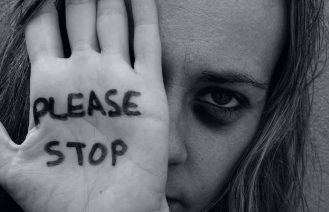By Taylor Mann, Resident in Counseling
Teen bullying is often dismissed as a normal part of growing up, but the truth is that it can have serious, long-lasting effects on mental health. Whether it happens at school, on the bus, or online, bullying leaves deep scars that can stay with a person for years. As bullying becomes more common, especially with the rise of social media, it’s important to understand how it affects the mental well-being of teenagers.
What Does Bullying Look Like?
Bullying isn’t just one thing—it can take many forms. There’s the obvious physical bullying, like hitting or pushing, but there’s also verbal bullying, which includes name-calling, threats, and insults. Then there’s relational bullying, which might not leave bruises but can be just as harmful. This type involves spreading rumors, excluding someone from a group, or other tactics that hurt someone’s social standing. And with the rise of technology, cyberbullying has become a major issue, allowing bullies to harass their victims 24/7. No matter the form it takes, bullying can have devastating effects on a teen’s mental health. Cyberbullying is especially insidious because it can follow teens everywhere, making it feel impossible to escape.
The Mental Health Impact
Bullying can significantly hinder a teen’s mental health, leading to issues that can last long after the bullying stops. Here’s how:
1. Anxiety: Constantly worrying about when the next bullying incident will happen can lead to chronic anxiety. This might make teens feel like they’re always on edge, even in places where they should feel safe.
2. Depression: Being bullied can make teens feel hopeless and isolated, leading to depression. They might lose interest in things they used to enjoy or struggle to find the motivation to get through the day.
3. Low Self-Esteem: When someone is constantly told they’re not good enough, it can start to feel true. Bullying can crush a teen’s self-esteem, making them doubt their worth and abilities.
4. PTSD: In extreme cases, the trauma of being bullied can lead to symptoms of PTSD, like flashbacks, nightmares, and severe anxiety.
5. Self-Harm and Suicidal Thoughts: Sadly, some teens might turn to self-harm or consider suicide as a way to cope with the pain of being bullied. The connection between bullying and suicidal thoughts is real and should never be ignored.
What Can Bystanders Do?
People who witness bullying play a huge role in how it plays out. If they do nothing, it can make the victim feel even more isolated. But if they speak up, it can make a big difference. Encouraging teens to stand up for each other and not just be silent observers can help break the cycle of bullying. The Upstander Project has some resources and education to help young people develop the skills and character to stop being a bystander and to speak up for members of their community. Check out the Upstander principles and training at https://upstanderproject.org/.
How to Support Teens
1. Talk About It: Let teens know it’s okay to talk about what they’re going through. Having someone to listen and offer support can be a huge relief.
2. Get Professional Help: Sometimes, the effects of bullying are too much to handle alone. Schools should have counselors available, and it’s important for parents to know when to seek outside help from mental health professionals.
3. Promote Anti-Bullying Programs: Schools can play a big part in preventing bullying by promoting kindness and respect through anti-bullying programs. These programs can teach students how to treat each other better and how to respond when they see bullying happening.
Bullying is a serious issue that affects more than just a teen’s school experience—it can impact their mental health for life. By understanding the effects of bullying and taking action to prevent it, we can help protect the mental well-being of the next generation.
Resources:
· StopBullying.gov – www.stopbullying.gov
· National Suicide Prevention Lifeline – suicidepreventionlifeline.org
· The Trevor Project – www.thetrevorproject.org
· Cyberbullying Research Center – cyberbullying.org
· PACER’s National Bullying Prevention Center – www.pacer.org/bullying
· Child Mind Institute – childmind.org
· Mental Health America – www.mhanational.org
#TeenMentalHealth #StopBullying #EndBullying #MentalHealthMatters

